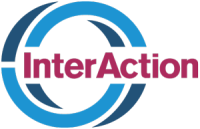Consultancy – Multi-Mandate Membership in NGO Forums

- 0 active jobs (view)
- www.interaction.org
Description
About InterAction:
InterAction is the largest U.S. based coalition of international nongovernmental organizations (NGOs) with 180+ members working around the world in low- and middle-income countries, fragile and post-conflict states, and emerging/growth economies. Member organizations are large and small, secular and faith-based, with a focus on people living in the world’s most poor and vulnerable places. The U.S. public, foundations, and governments support the work of our member NGOs that collectively invest and manage more than $15.4 billion a year. InterAction revenues come from dues, government grants, private foundation and corporate grants, and a fee-for-service program portfolio. Using its collective voice and convening power, InterAction seeks to shape important policy decisions and actions across a wide range of issues – including foreign assistance, humanitarian relief, development, economic equity, food security, and climate change – that advance human dignity, human potential, and self-determination.
To learn more about InterAction's mission, DEI approach, values and more visit the link below: https://www.interaction.org/about-interaction/interactions-approach-to-diversity-equity-inclusion/
Introduction
This TOR is meant to define the scope of a subset of research in InterAction’s project NGO Collective Action (co-funded by the Swiss Development Cooperation and USAID’s Office of Foreign Disaster Assistance). The objective of the research as a whole is to investigate trends and challenges affecting collective NGO action, negotiations, and advocacy in humanitarian operational environments. This subset of research will focus on the roles that NGO fora can play and the strategies they can employ to support, expand and generally strengthen the dialogue between humanitarian and development NGO stakeholders in a principled humanitarian response.
Background
Field-level NGO fora are active in nearly all of today’s acute and protracted crises and have been effective platforms for common and coordinated approaches to exchanging information, sharing expertise, establishing common ways of working, and collectively engaging with external stakeholders. However, due to their independent and relatively autonomous nature, these fora function with limited upstream support and lack the access to internal resources and guidance that individual NGO country offices generally receive from their headquarters. In addition, because field-level NGO fora evolve out of a specific crisis context and set of operational and member needs, there is a lack of standardization across fora that runs the risk of affecting coordination effectiveness and continuity.
This body of research begins with the hypothesis that the membership criteria for a forum in a humanitarian setting—humanitarian-only or humanitarian and development—is dependent on multiple contextual factors. This research will include lessons learned and best practices for NGO fora with (or considering expanding into) mixed mandate (humanitarian and development) membership – and humanitarian-only fora looking to coordination more strategically with other NGO stakeholders.
The research will look primarily at the roles NGO fora can take to support dialogue between NGOs within existing broader coordination systems, rather than offer commentary on changes that could (or should) be made to those systems.
Purpose
This research will review what role for a can take on to support collective action between humanitarian and development actors within a principled response—and will lay out best practices and lessons learned in terms of:
- WHAT criteria and WHO to consider when a humanitarian forum considers expanding membership to include development NGOs as well
- Identifying ways fora can support dialogue, inclusion, and collective action between humanitarian and development NGOs (especially in cases of joint membership)
- Best practices/norms for “observers” to fora (e.g., MSF, REACH, others…) [NOT SURE THIS BELONGS?]
AREA OF WORK 1: Forum Structure
Core Framing Research Question: What are the key factors that a humanitarian NGO forum should consider when deciding whether to expand its membership to include development NGOs?
Activity/Methodology: Through key informant interviews and desk research, develop analysis and lessons learned related to the NGO fora membership, with the aim of creating guidance to strengthen and streamline decision making.
Expected Deliverable
Brief “recommendations” paper paired with a decision-making tool/checklist aimed at humanitarian forum secretariats and steering committees on deciding if/when to expand membership to include development NGOs—and if so, how to begin to go about it.
- Facilitate decision-making process for fora when deciding if/when to expand membership.
- Assist fora to better understand best practices/lessons learned in terms of how to expand membership.
AREA OF WORK 2: How can fora support and strengthen dialogue between humanitarian and development NGOs?
- Core Framing Research Question: How can fora best support dialogue, inclusion, and collective action between humanitarian and development NGOs (especially in cases of joint membership) in a principled humanitarian response?
Activity/Methodology: Through key informant interviews and desk research, develop analysis and lessons learned and identify best practices.
Expected Deliverable:
- “Recommendations” paper aimed at NGO forum secretariats and steering committees on how the forum can best support dialogue, inclusion, and collective action between humanitarian and development NGOs
- Tools (e.g., example workplan, checklists) aimed at humanitarian-only forum secretariats and steering committees who are considering expanding to include development members
While the guidance expected is meant to be practical rather than general policy, an understanding of the global dialogue on “the Nexus” should be built into the understanding of “principled response”.
AUDIENCE FOR WORK
Primary Audience: Forum Secretariats and Steering Committees
Secondary Audience: Donors, host agencies, and other key stakeholders
Timeframe
The research is expected to commence mid-January 2022. The final papers are expected to take four working weeks to complete (e.g. 20 days FTE work / 160 hours) and to be completed by late February 2022.
Application Process:
- Interested organizations or individuals should send the following documents to jobs@interaction.org indicating Consultancy - Multi-Mandate Membership in NGO Forums in the subject line by January 19, 2022.
- Resume(s) with contact details, background and qualifications as it pertains to the objectives of the work, relevant credentials, and any relevant partnering agreements.
Please note that incomplete proposals/applications will not be considered. Due to the volume of applications, only finalists will be notified, no phone calls please!
